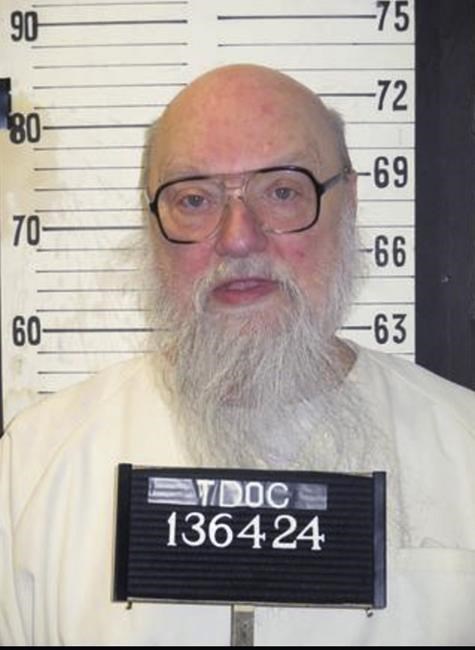
A photo provided by the Tennessee Department of Correction, date not known, shows inmate Oscar Smith. Smith, a Tennessee inmate scheduled to be executed April 2022, is asking the courts to reopen his case after DNA from an unknown person was detected on one of the murder weapons. Smith is scheduled to die by lethal injection on April 21. He was convicted in 1990 of fatally stabbing and shooting his estranged wife, Judith Smith, and her two teenage sons, Jason and Chad Burnett. (Tennessee Department of Correction via AP)
April 18, 2022 - 12:24 PM
NASHVILLE, Tenn. (AP) — The Tennessee Supreme Court on Monday declined to hear the appeal of an inmate facing execution this week who sought to have his case reopened after an unknown person’s DNA was found on one of the murder weapons.
The one-sentence order comes as the state prepares to kill Oscar Smith, 72, by lethal injection on Thursday. The court also denied his request to vacate his execution date.
Smith was convicted of fatally stabbing and shooting his estranged wife, Judith Smith, and her sons Jason and Chad Burnett, 13 and 16, at their Nashville home on Oct. 1, 1989. Smith has maintained that he is innocent.
The state Court of Criminal Appeals ruled last week that Smith didn’t provide evidence that he is innocent of the murders.
The appeals come after Smith asked the Davidson County Criminal Court to reopen his case earlier this month after a new type of DNA analysis found the DNA of an unknown person on one of the murder weapons.
The judge denied that request as well as a second request to reconsider, writing that the evidence of Smith’s guilt was extensive. The judge cited prior threats and a life insurance policy taken out by Smith for the three victims. Smith appealed.
Smith previously sought to prove that fingerprint evidence used against him was unreliable. Smith’s attorneys argued in an appellate motion last week that the combination of a fingerprint and DNA from an unknown person on one of the murder weapons should be considered together as strong proof of his innocence.
Smith would be the first inmate put to death in Tennessee since the beginning of the COVID-19 pandemic, which spurred the rescheduling of executions for several inmates.
News from © The Associated Press, 2022